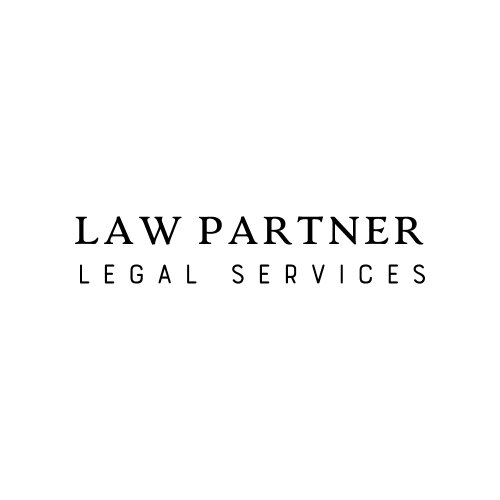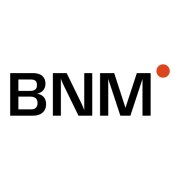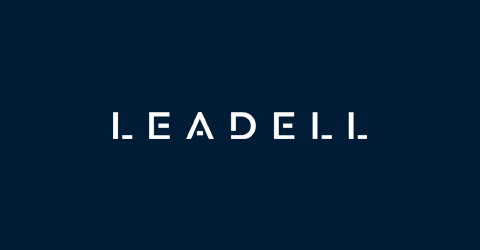Best Sustainable Finance Lawyers in Republic of Lithuania
Share your needs with us, get contacted by law firms.
Free. Takes 2 min.
Or refine your search by selecting a city:
List of the best lawyers in Republic of Lithuania
About Sustainable Finance Law in Republic of Lithuania
Sustainable finance in the Republic of Lithuania refers to financial services and investments that integrate environmental, social, and governance (ESG) criteria into business decisions and capital allocation. This sector is rapidly evolving due to EU-wide initiatives such as the European Green Deal and the Sustainable Finance Disclosure Regulation (SFDR). Lithuania, as an EU member state, is actively harmonizing its law provisions to align with these efforts. The aim is to direct capital flows towards sustainable activities, enhance financial transparency, and manage risks related to environmental and social issues. Lithuanian legislation and regulatory bodies are adapting to enable businesses and investors to participate effectively in sustainable finance opportunities, while also safeguarding compliance.
Why You May Need a Lawyer
Sustainable finance law is a complex and developing legal area in Lithuania. You may need legal support in situations such as:
- Understanding how EU regulations like SFDR and the Taxonomy Regulation impact your business operations or investment activities
- Drafting or reviewing financial disclosures related to ESG matters
- Ensuring compliance with local and EU reporting requirements on sustainable activities
- Structuring and negotiating green loans, bonds, or other sustainable finance products
- Protection of reputation and legal interests when facing regulatory inspections or penalties for greenwashing
- Evaluating and managing risks related to ESG factors in mergers, acquisitions, or joint ventures
- Advising on shareholder rights, stakeholder engagement, and corporate governance in the context of sustainability
Lawyers with experience in sustainable finance can guide you through legal uncertainties, help you avoid violations, and identify strategic advantages in changing legislation.
Local Laws Overview
Lithuanian sustainable finance laws are shaped primarily by the transposition of European Union directives and regulations. Key elements include:
- Sustainable Finance Disclosure Regulation (SFDR): Requires certain financial market participants and financial advisers to disclose how sustainability risks are integrated into their decision-making processes and products.
- EU Taxonomy Regulation: Provides a classification for sustainable economic activities, affecting investments and disclosures by Lithuanian financial institutions and companies.
- Corporate Sustainability Reporting Directive (CSRD): Expands requirements on non-financial and sustainability reporting for businesses established in Lithuania.
- Law on Securities of the Republic of Lithuania and related secondary legislation: Include provisions on the issuance of sustainable financial instruments such as green bonds.
- National supervisory guidance: The Bank of Lithuania issues guidance and supervises companies for adherence to sustainable finance obligations.
Businesses and investors in Lithuania must therefore navigate both national and EU-wide law to ensure complete compliance with all applicable standards in the sustainable finance sector.
Frequently Asked Questions
What is sustainable finance in Lithuania?
Sustainable finance in Lithuania refers to financial services, products, and investment strategies that consider environmental, social, and governance factors to promote long-term value and responsible behavior.
Which Lithuanian authorities oversee sustainable finance?
The main regulator is the Bank of Lithuania, which supervises financial markets and implementation of EU regulations. Other relevant bodies include the Ministry of Finance and the Ministry of Environment.
Are Lithuanian businesses subject to EU sustainable finance regulations?
Yes, Lithuania implements EU regulations such as SFDR and the Taxonomy Regulation, meaning many financial institutions and large enterprises must comply with these laws.
What are the main requirements for sustainable finance disclosures in Lithuania?
Organizations subject to SFDR and CSRD must disclose information on how they consider ESG risks, the sustainability of investments, and report annually on relevant data.
What are the penalties for non-compliance with sustainable finance rules?
Penalties may include administrative fines, public reprimands, or restrictions on certain activities imposed by the Bank of Lithuania and other authorities.
How do Lithuanian companies issue green bonds?
Green bonds can be issued by following the EU Green Bond Standard and meeting transparency and use-of-proceeds requirements, overseen locally by the Bank of Lithuania.
Is greenwashing regulated in Lithuania?
Yes, Lithuanian authorities monitor for misleading sustainability claims, and organizations can face legal consequences for false or exaggerated ESG statements.
Do foreign investors face the same sustainable finance obligations as Lithuanian companies?
If foreign investors operate in Lithuania or offer financial products to Lithuanian clients, they must generally comply with local and EU sustainable finance regulations.
Can small businesses in Lithuania be affected by sustainable finance laws?
While many obligations apply mainly to large companies and financial institutions, small businesses participating in supply chains or seeking certain financing may need to provide sustainability information.
How do I ensure my organization remains compliant with sustainable finance law?
It is recommended to stay updated on legal and regulatory changes, provide regular staff training, and consult with legal professionals specializing in sustainable finance compliance.
Additional Resources
For more information or support regarding sustainable finance law in Lithuania, consider the following resources:
- Bank of Lithuania - Provides regulatory updates, guidelines, and contact points for financial supervision
- Ministry of Finance of the Republic of Lithuania - Issues policy updates and legislative changes related to financial markets
- Ministry of Environment of the Republic of Lithuania - Offers information on environmental standards and sustainable development policy
- Lithuanian Banking Association - Shares information on best practices in sustainable finance among banking institutions
- Chamber of Commerce, Industry, and Crafts - Offers seminars, networking, and compliance support for businesses
- Local branches of international organizations such as the UNEP Finance Initiative, for broader ESG support
Next Steps
If you need legal assistance related to sustainable finance in Lithuania, follow these steps:
- Identify the main issue or question related to your sustainable finance activities
- Gather documentation such as company reports, contracts, policies, and communications relevant to your query
- Reach out to a law firm or attorney specializing in finance, corporate law, or ESG matters, with demonstrable experience in sustainable finance regulations
- Prepare specific questions and objectives for your consultation to maximize the effectiveness of legal advice
- Continue monitoring legal developments and maintain regular communication with your legal advisor for ongoing compliance and risk management
A legal professional can help you interpret regulations, advise on compliance, and implement best practices, ensuring that you maximize opportunities within Lithuania's sustainable finance sector while minimizing risks.
Lawzana helps you find the best lawyers and law firms in Republic of Lithuania through a curated and pre-screened list of qualified legal professionals. Our platform offers rankings and detailed profiles of attorneys and law firms, allowing you to compare based on practice areas, including Sustainable Finance, experience, and client feedback.
Each profile includes a description of the firm's areas of practice, client reviews, team members and partners, year of establishment, spoken languages, office locations, contact information, social media presence, and any published articles or resources. Most firms on our platform speak English and are experienced in both local and international legal matters.
Get a quote from top-rated law firms in Republic of Lithuania — quickly, securely, and without unnecessary hassle.
Disclaimer:
The information provided on this page is for general informational purposes only and does not constitute legal advice. While we strive to ensure the accuracy and relevance of the content, legal information may change over time, and interpretations of the law can vary. You should always consult with a qualified legal professional for advice specific to your situation.
We disclaim all liability for actions taken or not taken based on the content of this page. If you believe any information is incorrect or outdated, please contact us, and we will review and update it where appropriate.
Browse sustainable finance law firms by city in Republic of Lithuania
Refine your search by selecting a city.















